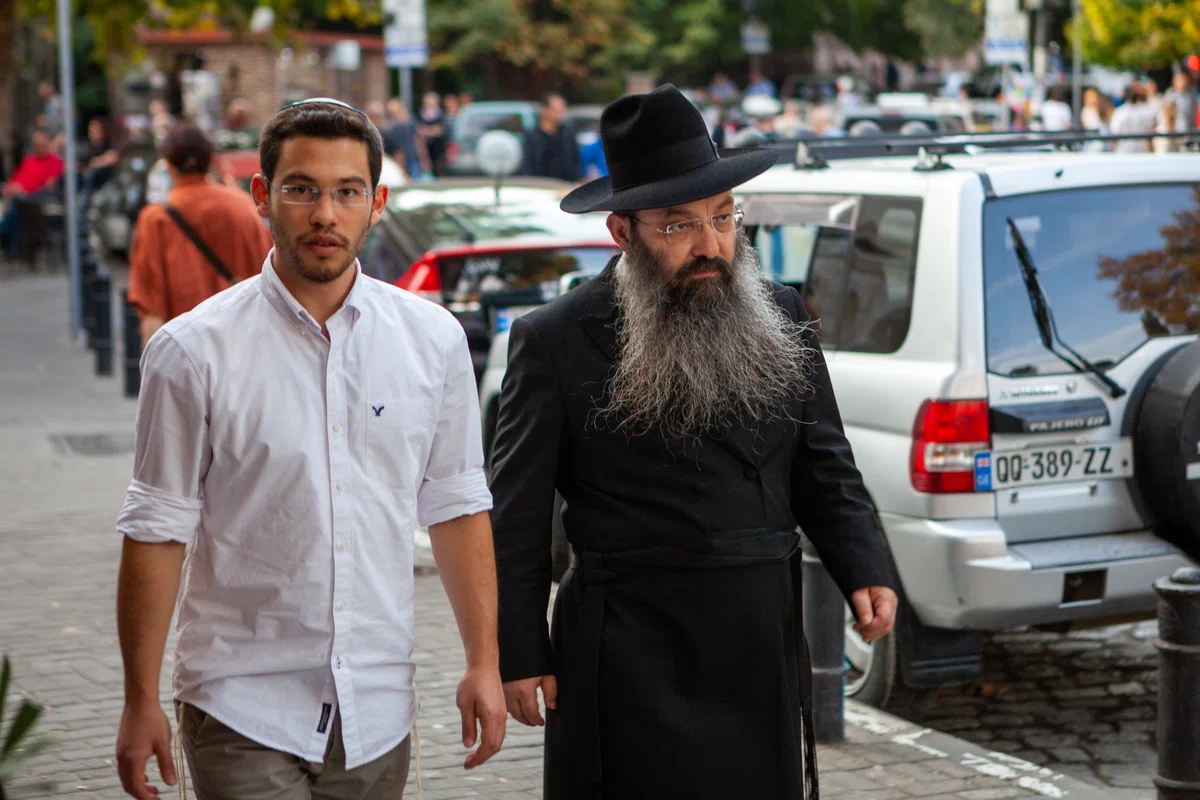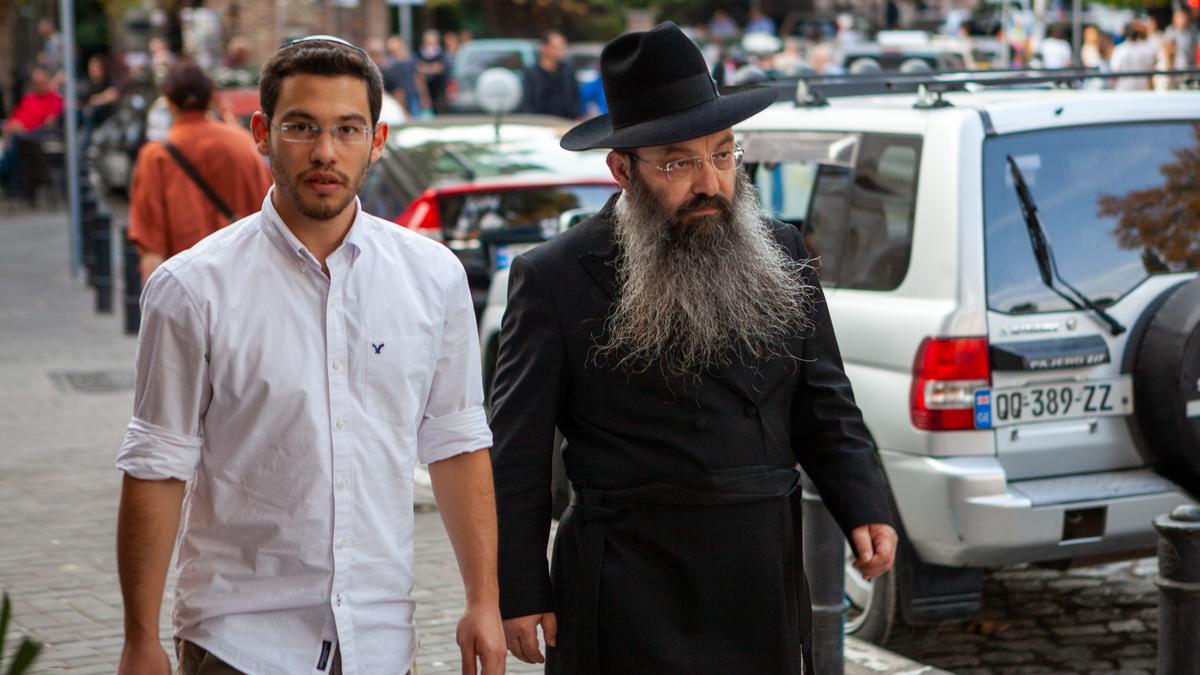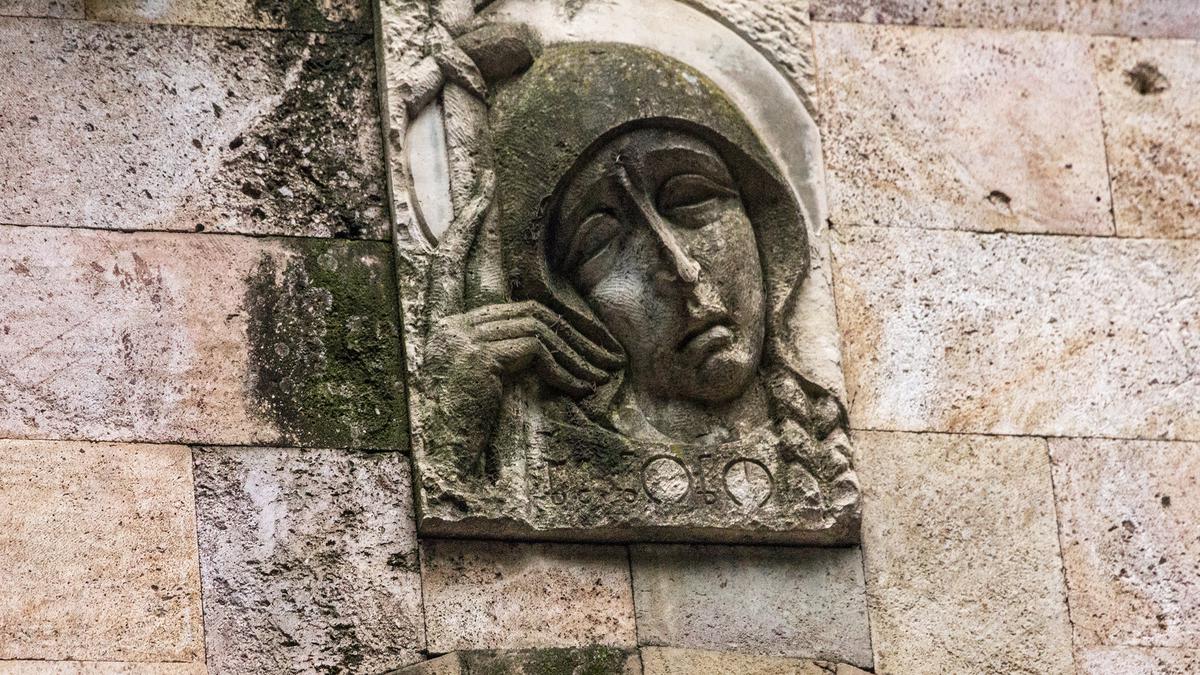
The Jewish Diaspora in Georgia. Learn the story of the first Jewish settlements on the territory of Georgia.
The Jewish communities of Georgia have existed for more than 2,600 years and they have achieved great success in politics, science, economics, and art. The formation of the first settlements and all the pogroms in history are described in detail on our madloba website. In the Middle Ages, "Kartveli Ebraeli" — Georgian Jews called themselves.
History of Georgian Jews⬇️
It is peaceful in Georgia representatives of different nationalities and religious confessions get along. In the center of Tbilisi, next to the Orthodox churches, there is a Muslim mosque, a synagogue, an Armenian and a Catholic church.
Jews are one of the oldest diasporas in the world. The history of Georgian Jews dates back more than 2,600 years.
The first Jewish settlements
In 586 BC, after the destruction of Jerusalem by Nebuchadnezzar, part of the Jews moved to the territory ancient Georgia. This is described in the historical chronicle "The Conversion of Kartli", this was also written by the Georgian historian of the XI century Leonti Mroveli, whose historical reports were included in the set of chronicles "Kartlis Tskhovreba" or "Life of Georgia".
Gradually, Jews settled from the southern regions to other regions. Historical sources and archaeological finds indicate that in the first centuries of our era they lived in Mtskheta, the capital of the ancient state Kartli (Eastern Georgia).
On the tombstones discovered by archaeologists near Mtskheta, there were inscriptions in Hebrew and Aramaic.
Christianization of Georgia
Among those who spread Christianity on the territory of ancient Georgia, there were also Jews. Evyatar from Urbnisi and Sidonia, his sister, who is also considered the first Christian in Georgia, are canonized.
According to legend, Rabbi Elioz went on a pilgrimage to Jerusalem in the year when Jesus Christ was executed. His mother Sarah begged her son not to take part in the execution of the Savior. Probably, this legend is connected with the fact that Georgians do not accuse Jews of the execution of the Messiah.
Sidonia asked her brother to bring her something that belonged to the Savior. Elioz was present at the place of Christ's execution, bought the Lord's chiton from the warrior and brought it to Georgia.
Tsarevich Revi's wife, the Jew Salomiya Ujarmskaya, studied prayers and fasts with equal-to-the-Apostles Nino, and served her. After the death of Saint Nina, she compiled her biography.
Middle Ages
The residence of Jews in Georgia is confirmed by the records of Arab scholars of the VI-VII centuries. Although there are not enough documents about this period.
Marco Polo, who visited Georgia in 1272, wrote that there were few Jews in Tbilisi.
During the Mongol invasion of Georgia (XIII century), many Jews moved to the west of the country and established communities there.
"Kartveli ebraeli" — that's what Georgian Jews called themselves. They adopted some of the traditions, the local language became the spoken language for them. Jews were engaged in crafts and trade, without competing with local merchants. A peculiar language or dialect was born among the merchants — Kivruli, based on Georgian, with an admixture of Hebrew words. The situation of Jews worsened in the XV–XVI centuries due to frequent military conflicts. During this period, there is a migration of the Jewish population, a significant number of them moved to the Crimea.
And yet, there was no anti-Semitism as such in Georgia. Jews lived a full life here, preserving their national characteristics. Their fate is intertwined with the life and fate of the indigenous population. There are even identical Jewish and Georgian surnames.

Persecution and pogroms in the XIX century
In Russia, the attitude towards Jews was not easy. It was believed that they were not loyal to the state and arrogant towards the Russian population. There were many rich bankers and merchants among the Jews, which also caused a bad attitude towards them.
In 1801 Eastern Georgia it becomes part of the Russian Empire. Perhaps, under the influence of Russian sentiments, Judophobia is manifested in Georgia. The abolition of serfdom and subsequent urbanization also played a role. The liberated Jews moved to cities, where, at times, Georgian workers considered them their competitors.
In the second half of the XIX century, there were six pogroms against Jews. They were accused of crimes that they did not commit. In 1850, a little boy was lost, he was found dead four days later. The doctor who examined the body said that the child had drowned, but the Jews were blamed for his death. The riots that began could only be stopped by M. Vorontsov, the Russian governor.
In 1878, in the village of Sachkhere, nine Jews were accused of murdering a Christian girl before the Passover holiday, allegedly in order to use her blood to make traditional matzo. The trial took place in Kutaisi.
It is known as the Kutaisi process. The Jews were acquitted, but, as they say, “the sediment remained,” and the slander did not end there. This happened every year from 1881 to 1884. Another brutal pogrom occurred in Kutaisi in 1895.

XX–XXI centuries
Under Soviet rule, the entire population of the Georgian Republic was called "Soviet people", without division into nationalities. The main occupations of the Jews were agriculture and trade. Georgians were also skilled farmers and traders. They understood each other well, so they did not conflict. Even synagogues in cities operated.
The playwright, a Jew by nationality, Guram Batiashvili, told how in the early 60s in his hometown Senaki (Micha Tshakaya) the authorities took away the synagogue building from the Jews. The Jews went to the secretary of the district party committee and demanded a plot of land for the construction of a prayer house. The land was allocated to them, the Jews raised funds and built a synagogue, but it burned down. They built another one — the building burned down again. But there was no conflict...
In the second half of the twentieth century, many Jewish families from Georgia moved to Israel. But they consider Georgia to be the mother who nurtured them. Their homeland is both Georgia and Israel.
In the ranks of the Red Army, Jews courageously defended their homeland during the Great Patriotic War, they were awarded orders and medals. In 1998, Jews and Georgians celebrated the 2600th anniversary of friendship and good neighborly living. Currently working in Tbilisi D. Baazov Museum of History and Ethnography of Georgian Jews. There are two synagogues.
Many representatives of the Jewish people have achieved success in politics, science, economics, art, etc. Some of them are known outside Georgia, for example, Boris Akunin and Tamara Gverdtsiteli. Currently, there are two hundred thousand Georgian Jews in the world, about thirteen thousand of them live in Georgia.
Multinational Georgia is always happy to welcome guests and is happy to introduce tourists to its customs and traditions. In every corner of the country you will encounter completely different beliefs and beliefs. Be ready for amazing acquaintances and a great time in the company of hospitable Georgians!












12 comments
Log in to leave a comment
В общем, статья оставила меня смущенной и с большим желанием получить больше информации и разъяснений. Видимо так было задумано 🙃
Тем не менее, евреи переняли многие национальные традиции, внесли серьёзный вклад в культуру и искусство других стран и наций, и крепко переплелись с местным народом.